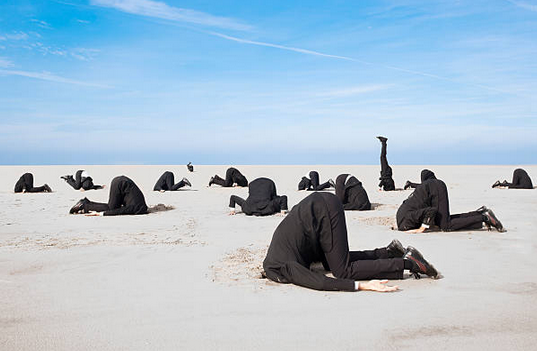
Just as positive habits create strong leaders, bad habits can and will create weak leaders. Here are seven habits to be especially mindful of. If you’re practicing even one of them, start working immediately to replace it with a positive habit before your leadership weakens and suffers major damage.
Holding to a double standard. Weak leaders are in the habit of saying one thing and doing another. They believe it’s fine to set rules for others, but they hold themselves exempt. Consistency between word and deed is a major factor in successful leadership, and part of being a leader is knowing that people are watching you at every step and taking their cues from your behavior.
Lack of vision or strategy. Weak leaders have a habit of not thinking beyond the scope of today. They may deal with immediate issues and concerns, but overall they’re comfortable with the status quo. They’re the ones who say, “If it’s not broken, don’t fix it.” This shortsightedness causes others to similarly focus on tasks instead of the visioning and strategic planning that will move the organization and its mission forward.
Poor communication. It’s impossible to be a strong leader with poor communication skills. If you can’t communicate, you can’t connect with others—much less provide engagement and transparency. The ability to speak, write and above all listen effectively is among the most important leadership skills.
Isolation. If you hold yourself inaccessible and unavailable, sitting in your office with the door closed, you send a clear message to others that you’re unwilling to engage. The message it sends isn’t one of leadership but of privilege and insecurity.
Failing to develop others. A weak leader focuses solely on getting the job done instead of using the job as a way to help their people develop new competencies and skills. It’s an ineffective leader who keeps their people playing small without investing in them, whether it’s through neglect or because they see others as a threat.
Resistance to improvement. Every great business is constantly growing and evolving. Leaders who resist change and improvement are arrogant or complacent—and sometimes both. They believe things are fine as they are and aren’t interested in moving to the next level or positioning for the future.
Lack of interest in inspiring others. The best leaders know how to energize people and inspire them to reach higher levels of performance and potential. Those who can’t are probably uninspired themselves, and it’s virtually impossible to build a great team with an uninspired leader.
Being a strong leader requires equal amounts of self-awareness, self-management and humility. Spend some time reflecting on any bad habits that may be limiting your leadership potential and resolve to take steps now to reverse them.
